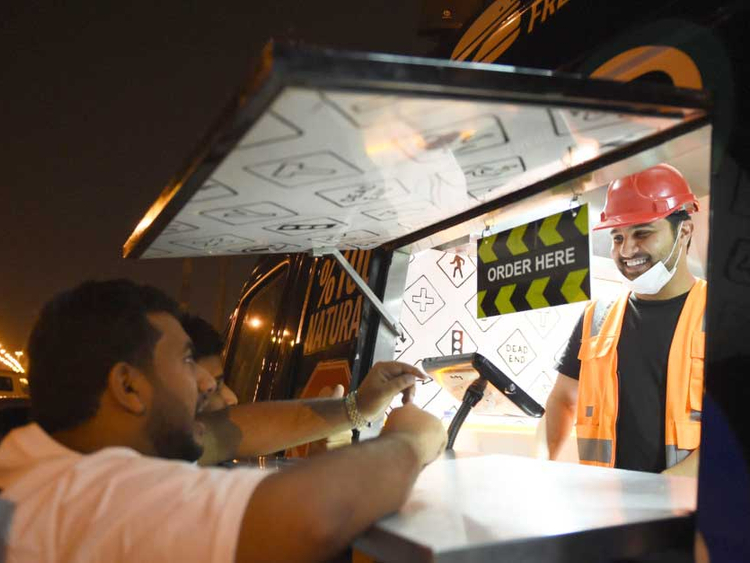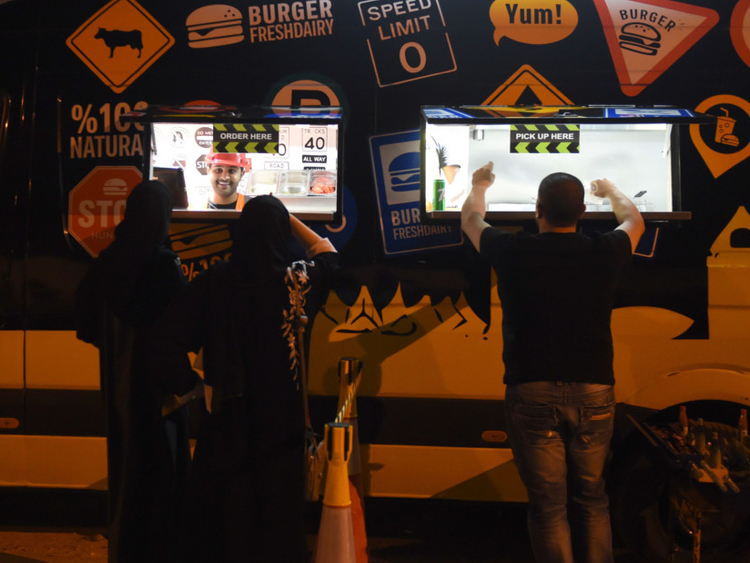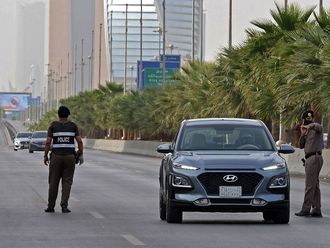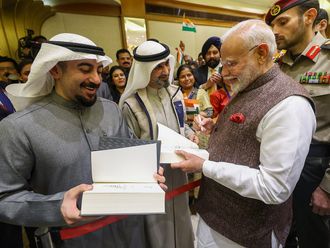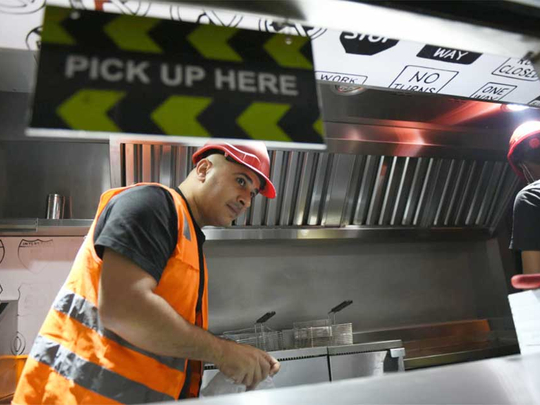
Riyadh: Dishing out burgers and fries slathered with melted cheese, “One Way Burger” is like any other trendy food truck in Riyadh.
But it offers something rare - the cook behind the sizzling hot grill is a Saudi.
In the once tax-free petro-state, which long offered its citizens cradle-to-grave welfare, blue-collar occupations such as cooking, cleaning and working at gas stations have largely been the preserve of foreign workers, who far outnumber Saudis.
But Saudis are increasingly taking on such jobs in a new age of austerity when gas is no longer cheaper than water, with the government trimming oil-funded subsidies and tackling sluggish economic growth and high unemployment.
“When I started this food truck two years ago many people said: ‘What? You will sell burgers and sandwiches in the street? You come from a big family and big tribe’,” said Bader Al Ajmi, the 38-year-old owner of One Way Burger.
“People were surprised,” he added, as a Porsche pulled up at the side of his truck to place an order.
Since Al Ajmi started his business, dipping into his personal savings, owning a food truck has become the trend du jour and attained a level of respectability.
Many Saudis, long reliant on the welfare state for secure and undemanding white-collar jobs, are embracing manual labour jobs.
For the first time, a new crop of nationals are working as tea sellers and car mechanics.
Last December, residents of eastern Al Ahsa region feted a handful of young Saudis began working at a gas station.
“There is no shame in this work,” a gas station customer said in a Snapchat video.
“Prophet Mohammad (PBUH) used to work as a shepherd.”
It remains unclear how many nationals have moved into blue-collar jobs.
“Saudis are moving into jobs historically dominated by expatriate workers,” said Graham Griffiths, senior analyst at the consultancy Control Risks.
“The social stigma surrounding certain types of manual or service-based labour has been strong, but economic necessity is pushing many to take such jobs regardless of their social status.”
Cultural attitudes to work are changing amid a major retooling of Saudi Arabia’s lagging economy, with the country seeking to wean citizens off government largesse as it prepares for a post-oil era.
Nearly two-thirds of all Saudis are employed by the government, and the public sector wage bill and allowances account for roughly half of all government expenditure.
Saudi economist Abdullah Al Maghlouth said the new economy will push more Saudis to become plumbers, carpenters and tailors, jobs that were acceptable decades ago in the pre-oil boom era.
Meanwhile, the government’s push to replace foreigners with Saudi workers - a policy known as “Saudisation” - as well as a backbreaking expat levy are driving a huge exodus of expats, who hold 70 per cent of all jobs.
Official statistics show nearly 800,000 foreign workers have left the kingdom since the beginning of 2017.
Al Ajmi said his success, which also spotlights the kingdom’s nascent startup scene, prompted him recently to buy another food truck.
“Many people... were against the (food truck),” Ajmi said. “Now they say: ‘If you have a job, let me know.’”


